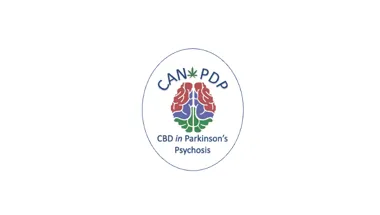
Professor Sagnik Bhattacharyya
Professor of Translational Neuroscience and Psychiatry
Research interests
- Neuroscience
- Psychiatry
Biography
The overarching goal of my research program is to understand aspects of the neurobiology of psychotic and substance abuse disorders (particularly cannabis use), so as to enable the translation of knowledge into practice, either by helping develop novel treatments or enabling the prediction of risk of adverse outcomes and their prevention. I have focused mainly on cannabis as it is the most widely used illicit (though this seems to be changing rapidly) drug worldwide and also arguably a preventable risk factor for onset and poor outcome in psychotic disorders such as schizophrenia.
I head the Translational Neuroscience and Psychiatry research group and lead multi-centre clinical trials to investigate the efficacy of cannabidiol as a treatment and understand how it may work in people at clinical high-risk of psychosis (CANTOP-RCT) as well as in Parkinson’s disease psychosis (CAN-PDP). I also collaborate on other feasibility/ mechanistic clinical trials of cannabinoids in other indications including dementia.
We employ a number of techniques and approaches in our work in addition to clinical trials. Using experimental medicine approaches we combine neuroimaging techniques (fMRI, MRS and PET) with pharmacological challenge to experimentally model aspects of psychosis and investigate mechanisms and determinants (e.g. genetic, CB1 receptor, neurophysiological) of the various harmful behavioural and cognitive effects of cannabis as well the therapeutic potential of cannabinoids. Using interview-based approaches as well as data mined from clinical records, we also investigate clinical and epidemiological cohorts to understand the long-term effects of cannabis use on clinical outcome (patient cohorts) and on cognition and behaviour (e.g. violence, depression in otherwise healthy cannabis users), as well as their determinants and underlying mechanisms (using neuroimaging techniques). Finally, in collaborative work, we are investigating the mechanisms underlying the effects of cannabinoids in cellular and animal models. Collectively, these approaches allow us to test the therapeutic potential of new drug candidates at different levels of complexity from the dish to the human brain before moving on to experimental medicine studies and clinical trials in patients.
I am a Consultant Psychiatrist at the South London & Maudsley NHS Foundation trust and run a specialist dual diagnosis clinic focusing on people with psychosis and comorbid substance misuse.
I qualified in Medicine (MBBS) at Calcutta Medical College and did my initial psychiatry training in India at the National Institute of Mental Health and Neurosciences, Bangalore obtaining a DPM, MD (Psychiatry) and Diplomate of National Board (Psychiatry). I came to the UK in 2002, starting on the UCL rotational training scheme in psychiatry. After my Indian qualifications were recognised as equivalent to MRCPsych by the Royal College of Psychiatrists (UK), I started on the Maudsley rotation for higher specialist training in Psychiatry in 2004 and obtained Certificate of Completion of Specialist Training (General Adult Psychiatry) in 2008. I started at King’s as MRC clinical research training fellow in 2006, obtained a PhD in 2010 and have remained here ever since.
Awards:
- NIHR Clinician Scientist award, 2012.
- Brain Travel Award (Winter Workshop in Psychoses), 2009
- Highly commended for nomination to the short-list for NHS Innovator London Awards 2008 under the ‘Diagnostics & Laboratory’ category for the Cannabis Vulnerability Assessment tool (CaVeAT).
- European College of Neuropsychopharmacology (ECNP) fellowship, 2008.
- Young Psychiatrist Scholarship, 2008 awarded by the Association of European Psychiatrists.
- Award to attend and present at the ECNP workshop for Young Scientists in Europe at Nice, 2008.
- British Association for Psychopharmacology (BAP)/ Eli Lilly Postdoctoral fellowship award, 2007.
- ECNP travel award, 2007
- MRC Clinical research training fellowship award, 2006.
Research Group
-
Psychosis Clinical Academic Group
-
Department of Psychosis Studies
Research

Cannabidiol for Parkinson’s Disease Psychosis (CAN-PDP) Trial
Multi-centre trial of cannabidiol (CBD) for the treatment of Parkinson's disease psychosis
Project status: Ongoing
- Module lead, ‘Therapeutic research in Psychiatry’ module (MSc in Psychiatric Research)
- Chair, Programme board (MSc in Organisational Psychology and Psychiatry) and member of the IoPPN Postgraduate Assessment Board.
- I teach and/or examine on a number of MSc courses (MSc in psychiatric research, MSc in Mental Health Studies, MSc in Early Intervention in Psychosis), supervise PhD students and MSc dissertations.
- I interview and examine medical students at the GKT School of Medicine.
- I also host medical and other undergraduate/ postgraduate students as well as psychiatry trainees (both from within the UK as well as those on ERASMUS or comparable programmes) for clinical and/or research placements.
Research

Cannabidiol for Parkinson’s Disease Psychosis (CAN-PDP) Trial
Multi-centre trial of cannabidiol (CBD) for the treatment of Parkinson's disease psychosis
Project status: Ongoing
- Module lead, ‘Therapeutic research in Psychiatry’ module (MSc in Psychiatric Research)
- Chair, Programme board (MSc in Organisational Psychology and Psychiatry) and member of the IoPPN Postgraduate Assessment Board.
- I teach and/or examine on a number of MSc courses (MSc in psychiatric research, MSc in Mental Health Studies, MSc in Early Intervention in Psychosis), supervise PhD students and MSc dissertations.
- I interview and examine medical students at the GKT School of Medicine.
- I also host medical and other undergraduate/ postgraduate students as well as psychiatry trainees (both from within the UK as well as those on ERASMUS or comparable programmes) for clinical and/or research placements.
